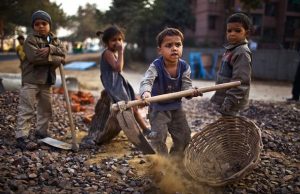“Child Wellbeing in an Unpredictable World” : UNICEF Report

A United Nations International Children’s Emergency Fund (UNICEF) report titled “Child Wellbeing in an Unpredictable World” reveals that children in the world’s wealthiest nations have experienced a steep decline in academic performance, mental health, and physical wellbeing since the onset of the Covid-19 pandemic.
- In India, most children with mental health issues remain undiagnosed and untreated.
- Even before Covid-19, 50 million children were affected, with 80–90% not seeking help.
- A 2021 UNICEF-Gallup survey found that only 41% of Indian youth supported seeking mental health help, highlighting widespread stigma and reluctance to seek support.
- It has been observed that suicide is the 4th leading cause of death among the late adolescent age groups (15–19 years) in India.
- According to UNICEF’s World Obesity Atlas 2022, India may have over 27 million obese children by 2030 (1 in 10 globally), with associated economic costs projected to surge from USD 23 billion in 2019 to USD 479 billion by 2060.
- Infant Mortality Rate (IMR) reduced from 39 per 1000 live births (2014) to 27 per 1000 live births (2021).
- Under-Five Mortality Rate (U5MR) dropped from 45 per 1000 live births (2014) to 31 per 1000 live births (2021).
Skills: - India has one of the largest school systems with over 240 million students and 9 million teachers, but learning outcomes, especially in literacy and numeracy, remain a major challenge.
- The Economic Survey 2024-25 notes that National Education Policy (NEP), 2020 aims for 100% Gross Enrolment Ratio (GER) by 2030.
- Currently, GER is nearly universal at the primary level (93%) but lower at the secondary level (77.4%).
- Despite progressive enrollment, learning outcomes remain poor, particularly in foundational literacy and numeracy.
- According to the World Bank’s Learning Poverty Index (percentage of 10-year-olds unable to read a basic text), India’s learning poverty rate increased to 70% post Covid-19, from 55% in 2019.
- A survey by Smile Foundation reveals that 58% of teachers in India believe children missed out on social skills during Covid-19 and get distracted easily.




